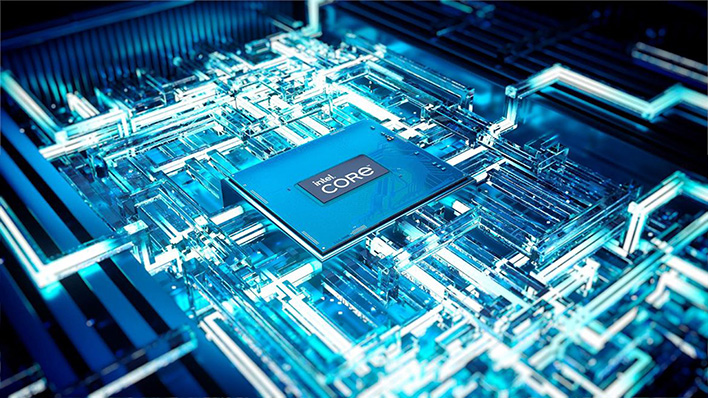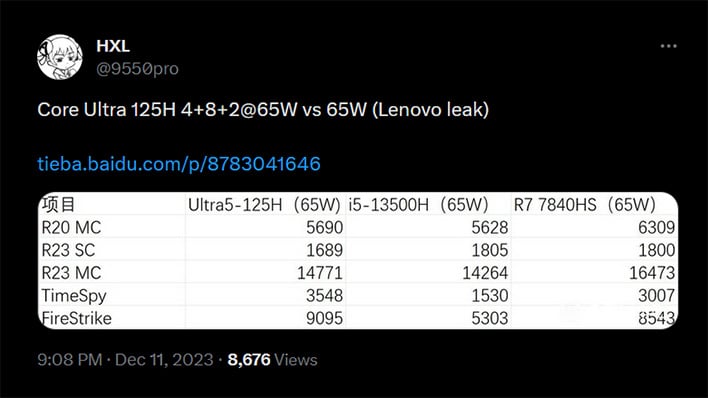Intel Core Ultra 125H, AMD Ryzen 7 7840HS Battle For Mobile Supremacy In Early Benchmarks

Five benchmarks comparing an upcoming Intel Core Ultra 125H against AMD’s Ryzen 7 7840HS along with Intel’s own current-generation Core i5-13500H popped up on Baidu yesterday. The tests reveal that Intel’s new Meteor Lake processor seemingly isn’t that much faster than the Core i5-13500H it is replacing, and is actually slower than AMD’s latest Zen 4 mobile chip. The only exception to this is in the GPU results, where Meteor Lake showed leading performance thanks to its newer Arc graphics tile.
The five benchmarks shown included Cinebench R20, both tests of Cinebench R23, 3DMark Time Spy, and 3DMark Fire Strike. For the CPU tests, the Ryzen 7 7840HS beat out the Core Ultra 125H by 11% and 12% in the multi-core benchmarks for Cinebench R20 and R23. In the R23 single-core benchmark, the performance difference was reduced to roughly 7%. However, in the GPU tests, the tables were completely turned, with the Core Ultra 125H beating out the AMD chip by 18% in Time Spy and 6.4% in Fire Strike.
The Baidu post has been deleted, but fortunately, HXL saved the relevant data.
Against the Core i5-13500H, the Core Ultra 125H showed generally similar performance in the CPU tests. In the multi-core Cinebench R20 and R23 benchmarks, the Meteor Lake CPU was 1% and 3.5% quicker than its predecessor, but in the R23 single-core results the i5-13500H was 6.5% faster than the Ultra 125H. In the graphics tests, the Core Ultra 125H annihilated the Core i5's older Xe graphics. In Time Spy the Meteor Lake chip offered up 2.3x the performance, while in Fire Strike it was 72% quicker.
These results aren’t overly surprising. From what we’ve seen already of Intel’s new Meteor Lake architecture, Team Blue is not optimizing its next-generation architecture for CPU performance. Instead, it is prioritizing CPU efficiency, graphics performance, and AI hardware acceleration over anything else. The integrated graphics chip has been massively improved over prior generations thanks to the inclusion of a slightly cut-down form of Intel’s Alchemist GPU architecture found in discrete GPUs such as the A750 and A770. This is why the GPU results are substantially more performant than the CPU results.
Of course, take these results with a big dose of salt due to their origins. We don’t know if the data is real, and even if it is, we can't be sure that the Meteor Lake chip used in the benchmarking process is a retail product in a production-ready laptop instead of an unfinished engineering sample. We're also not quite sure where the leaker found a Ryzen 7 7840HS with a 65W power limit given that this part is normally configured for up 35-54W. We will know more about Meteor Lake’s performance soon, though; Intel's first disaggregated CPUs are expected to debut later this month.


